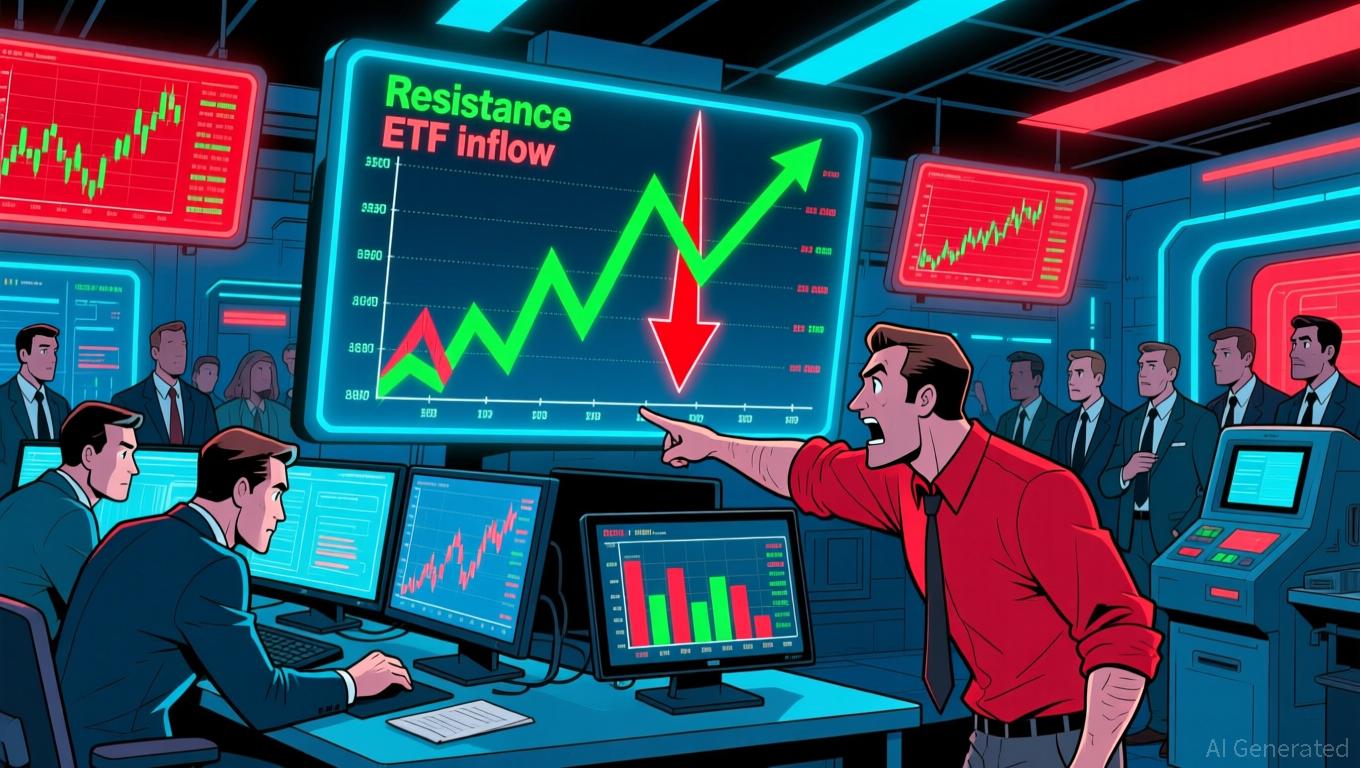The COAI Token Fraud: An Urgent Alert for Cryptocurrency Investors
- COAI token's 2025 collapse exposed systemic DeFi vulnerabilities, costing investors billions through regulatory loopholes and weak governance. - Scam operators exploited jurisdictional gaps in Southeast Asia and the U.S., with $10B+ annual losses attributed to AI token fraud and unclear CLARITY Act definitions. - Conflicting U.S. regulatory frameworks (SEC/CFTC) and partial measures in Hong Kong/Singapore highlight fragmented global oversight of crypto markets. - Cross-border enforcement (e.g., $13.4B se
The downfall of the COAI token in November 2025 sent ripples throughout the decentralized finance (DeFi) sector, revealing deep-rooted weaknesses in the rapidly developing cryptocurrency landscape. Investors saw billions vanish in a fraudulent scheme that took advantage of unclear regulations and poor oversight, raising a pressing issue: In a realm shaped by decentralization and global reach, how can innovation be encouraged while still safeguarding investors?
Regulatory Shortcomings and the COAI Fraud
The COAI token fraud flourished in an environment lacking clear legal boundaries.
The story of She Zhijiang, a scam mastermind originally from China who was extradited back in 2025, highlights the international scope of such crimes.

Investor Safeguards: A Patchwork Approach
Newly developing markets have faced difficulties in establishing comprehensive protections for investors. The COAI debacle made clear the significant gap between technological progress and regulatory oversight. For example,
Some regions have started to make gradual improvements.
Moving Forward: The Need for Global Unity and Clear Rules
The COAI token scandal has prompted a reevaluation of how regulations are crafted.
The takeaway for investors is unmistakable: simply diversifying assets and conducting research is no longer sufficient. The COAI incident has revealed just how vulnerable DeFi systems are in places where regulation trails behind technological change. As projects like ZEUSNFTX work to restore faith through scalable blockchain innovations, the responsibility remains with regulators to establish transparent rules that foster both security and progress
Disclaimer: The content of this article solely reflects the author's opinion and does not represent the platform in any capacity. This article is not intended to serve as a reference for making investment decisions.
You may also like
India’s Top Court Declares Crypto—and XRP—Legal Property Under Indian Law
Quick Take Summary is AI generated, newsroom reviewed. The Madras High Court declared crypto assets like XRP as legal property. The case involved a WazirX user who lost XRP during a platform hack. The court said digital assets show real ownership traits. Holders now get legal protection similar to physical property ownership.References X Post Reference
XRP and DOGE ETFs: Grayscale Moves Closer to U.S. Trading
Quick Take Summary is AI generated, newsroom reviewed. Grayscale lists XRP and DOGE ETFs in the DTCC registry. Listing signals progress toward potential SEC approval. ETFs let investors access crypto without wallets or exchanges. XRP and Dogecoin could see increased adoption and market inflows.References XRP AND DOGE ETF INCOMING! Grayscale's $XRP and $DOGE ETFs have been added to the DTCC registry.
Whale Buys ETH: Could Large Purchases Stabilize Prices?
Quick Take Summary is AI generated, newsroom reviewed. Whale #66kETHBorrow purchased 19,508 SETH, totaling 405,238 ETH. Portfolio shows $126M in unrealized losses, yet he continues buying. Large buys by whales can stabilize ETH prices and affect market sentiment. Activity signals strong long-term confidence in Ethereum among big investors.References WHALE BUYS $61M IN ETH! LookonChain flags whale #66kETHBorrow scooping up 19,508 SETH, pushing his total since Nov 4 to 405,238 ETH ($1.29 BILLION).
Bitcoin Updates Today: Apeing’s Whitelist Compared to Bitcoin’s Surge: The 2025 Crypto Battle Between Innovation and Speculation
- Apeing ($APEING) emerges as a 2025 crypto standout with a whitelist-first model emphasizing Ethereum-based security and community governance. - Bitcoin tests $105,000 resistance amid stalled institutional demand, while Ethereum advances Supra's 1.5x faster EVM execution engine to address scalability. - Market analysts highlight a "mid-cycle consolidation phase," with 72% of Bitcoin supply still in profit despite recent volatility. - Apeing's structured whitelist contrasts with meme coin risks, offering e
